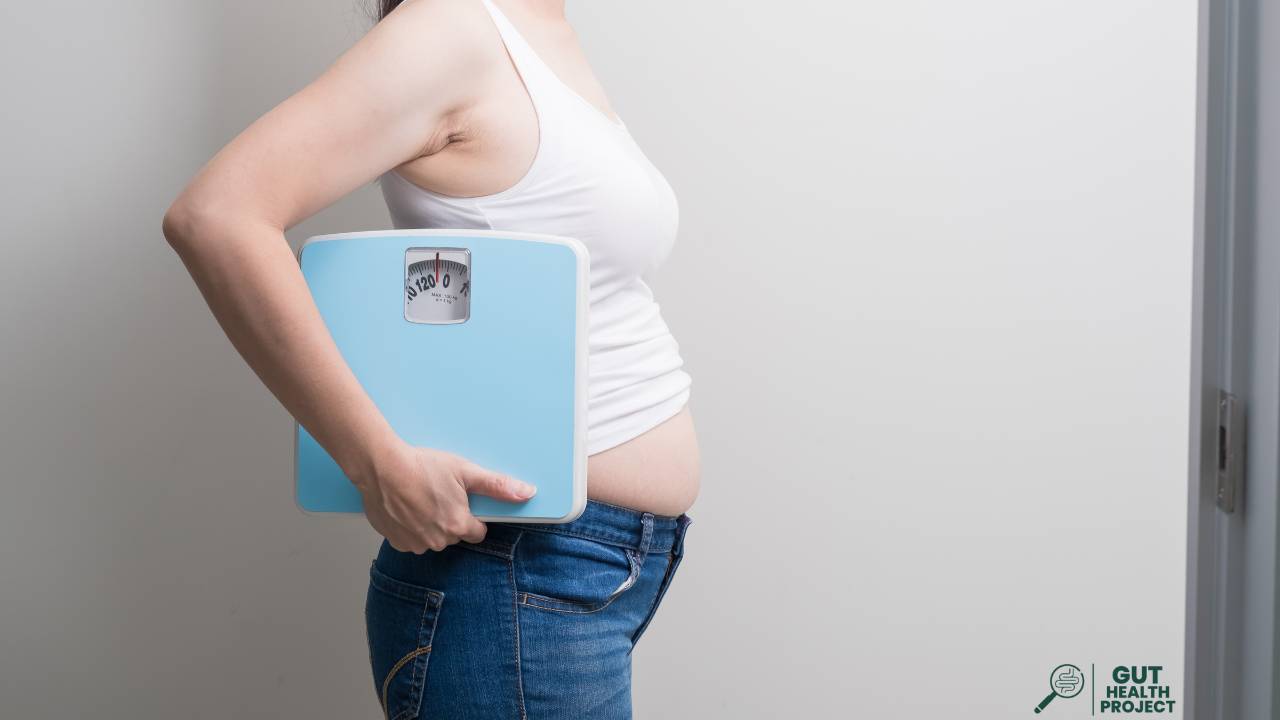Still Bloated — Even When You’re Eating Well? Let’s Talk About Why
Apr 10, 2025
Bloating is one of the most common complaints I hear from clients, and it often brings along its not-so-fun sidekick: gas. They usually show up together, and they can seriously impact how you feel day-to-day.
So what actually causes bloating and gas? And why does it keep happening — even when you’re eating healthy, drinking water, and doing “all the right things”? Let’s break it down.
What Is Bloating, Really?
Bloating is that uncomfortable, sometimes painful feeling of fullness or swelling in your belly. For some, it shows up only after big meals. For others, it’s a daily struggle — and it can strike after just a small snack or even a glass of water.
Most of the time, bloating is due to a buildup of gas in your digestive tract, which might be released through burping or passing gas. While it’s normal to feel a little bloated after a large, carb-heavy meal, it becomes a red flag when it’s happening regularly or without a clear cause.
When Is Bloating Normal — and When Is It Not?
A bit of bloating after a big meal? Totally normal. Gas is a natural part of digestion, especially when your body is breaking down carbs or fiber. But if you’re bloated often, even after small meals or when you wake up in the morning — that’s not something to ignore.
This kind of bloating — especially when it comes with excess gas, discomfort, or pain — often signals something deeper going on in the gut.
Common Causes of Bloating and Gas
There are plenty of reasons you might be bloated — from everyday habits to deeper gut dysfunction. While it’s always important to rule out serious medical conditions like IBD, liver disease, or bowel obstructions, most ongoing bloating stems from more manageable (yet still frustrating) causes.
Food Triggers That May Be to Blame
Certain foods are known to cause bloating, especially if your gut is already a little off balance.
-
High-FODMAP foods: These fermentable carbs (like onions, garlic, beans, and dairy) often lead to gas and bloating in people with sensitive digestion or an imbalanced gut.
-
Raw veggies: While healthy, they can be tough to break down, especially if your digestion is sluggish.
-
Red meat: If not chewed well, fatty or heavy meats can sit in the stomach too long and cause bloating and gas.
Eating Habits That Make Bloating Worse
How you eat matters just as much as what you eat.
-
Eating too fast: Swallowing air while rushing meals can cause bloating (called aerophagia).
-
Not chewing enough: Chewing is the first step in digestion — skipping it puts extra pressure on your gut.
-
Overeating: Obvious but often overlooked, too much food at once = too much work for your gut.
-
Eating while stressed: When your body is in fight-or-flight mode, digestion slows down dramatically.
Underlying Gut Issues That Can Cause Bloating
If food or habits don’t seem to be the main issue, it could be what’s happening inside your digestive system.
-
Low stomach acid: Without enough acid, food isn’t broken down properly, leading to fermentation and gas.
-
Low digestive enzymes: Enzymes are essential for breaking down proteins, carbs, and fats — low levels mean more bloating.
-
Low bile production: This makes fat digestion harder, which can lead to that heavy, bloated feeling.
-
Gut dysbiosis: An imbalance of good and bad bacteria in your gut can lead to poor digestion and excess gas.
SIBO: A Hidden Cause of Chronic Bloating
One of the most common root causes of ongoing bloating is SIBO (Small Intestinal Bacterial Overgrowth). This happens when bacteria overgrow in the small intestine, where they shouldn’t be. These microbes ferment food too early in the digestive process, causing gas, bloating, and discomfort.
SIBO can develop for many reasons — low stomach acid, slow gut motility, past food poisoning, long-term medication use, or even chronic stress.
What Can You Do About It?
The first step is checking in with your daily habits. Are you chewing your food well? Eating while distracted or rushed? Overeating regularly? Start there.
If those areas look solid and you’re still dealing with bloating and gas, it’s time to go deeper.
Here’s what I recommend for my clients:
-
Testing for root causes like SIBO or gut dysbiosis (a SIBO breath test or stool analysis can offer key insights)
-
Looking at your history — When did your symptoms start? What changed? (Think: antibiotics, stress, travel, illness, diet shifts)
Often, bloating begins after a triggering event, and our well-meaning efforts to “fix” it (like cutting out food groups or eating less) can actually make things worse.
Final Thoughts
Bloating and gas aren’t just annoying — they’re signals from your body that something’s not working as it should.
You don’t have to live with discomfort, hide your symptoms, or guess your way through food lists. With the right support and a root-cause approach, it’s possible to feel lighter, more energized, and in control of your digestion again.


